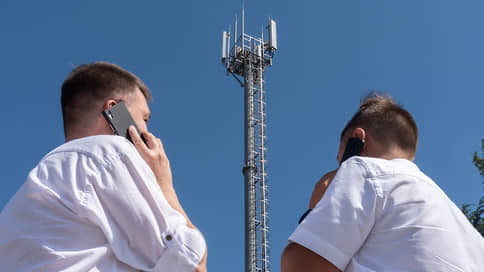Roskomnadzor will expand knowledge about subscribers
[ad_1]

Mintsifra wants to expand the amount of data that telecom operators transmit to Roskomnadzor. Now, to the full name, passport number and other information about subscribers, data on the date of conclusion of contracts with corporate clients and the list of numbers transferred by operators to state customers will be added. Market participants assure that almost nothing will change for citizens and corporate clients. But Roskomnadzor and operators will have to refine their information systems.
On August 30, the Ministry of Digital Development published draft resolution government, changing the rules by which telecom operators transmit information about subscribers to the information system of Roskomnadzor and how they check the accuracy of their information.
Now the rules are regulated by Decree No. 1313. According to it, operators are obliged to transfer the full name of subscribers, dates of birth, passport details, names of organizations, TIN, PSRN (for subscribers-legal entities), information on the period and volume of communication services, as well as data on ways to confirm the reliability of these data . The document also assumes that all information transmitted to the system, except for data on the volume of communication services, is encrypted, and personal data of subscribers and company details are hashed for additional protection.
The new draft resolution assumes that the list of transmitted information will additionally include data on the date of conclusion of the contract for the provision of communication services, the beginning of their provision to owners of corporate SIM cards, as well as a list of numbers that operators have allocated to government customers.
The requirements for hashing company details are also removed (they are saved for subscribers’ personal data). The document should come into force on September 1, 2024.
“The project clarifies the set of transmitted information, including data on the name of the legal entity, TIN and OGRN,” Roskomnadzor noted. “We propose to stop hashing the name of the organization, TIN and OGRN, because this is public information,” the Ministry of Digital Affairs explained to Kommersant.
They expect that, in general, the changes “will make it possible to more effectively identify the misuse of subscriber numbers.” We are talking about solving the problem of gray SIM cards.
Roskomnadzor has intensified its fight against owners of gray SIM cards since the spring: in April, telecom operators began mass sending out push notifications and SMS to subscribers asking them to confirm personal data by visiting a communication salon or in the personal account of the State Services application (see Kommersant dated April 14). Vedomosti, citing sources, wrote that by the end of August, owners of about 7 million gray SIM cards could be blocked.
Tele2 says that the implementation of the new requirements “will require some changes in the company’s processes, but will not have a significant burden on information systems and other resources.” MTS and MegaFon declined to comment, VimpelCom did not respond to a request. Kommersant’s interlocutors in the industry say that the changes “in fact will not affect private subscribers, but will help verify the accuracy of data on the real owners of corporate SIM cards.”
The interlocutor of Kommersant in a large telecom operator calls the changes technical, and the fact that the norm will come into force only in a year connects with the fact that both telecom operators and Roskomnadzor will have to refine their data exchange systems.
[ad_2]
Source link





